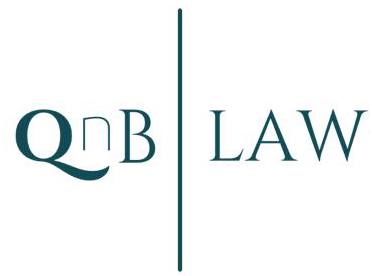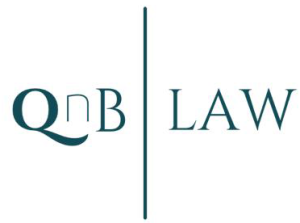It’s exciting news for the Social Security Fund subscribers in Tanzania who want to purchase, construct, repair, alter, or improve their residential houses. Through the newly enacted Regulations issued in March 2024 by the Minister for State, Prime Minister’s Office, Labour, Youth, Employment, and Persons with Disability, now members of the Social Security Fund can use part of their benefits as collateral for a home mortgage.
The Social Security (Use of Member’s Benefit Entitlements as Collateral for Home Mortgage) Regulations of 2024, issued through GN. No. 141 (“The Regulations”) provide for the collateral eligibility criteria and conditions, application procedure, collateral, and execution.
Eligibility Criteria

According to the Regulations, a registered member of a Social Security Scheme who has contributed to the fund for at least one hundred eighty (180) months, with twelve consecutive months of contribution prior the date of the collateral issuance is an eligible member for the issuance of collateral.
Conditions
The Regulations highlight specific conditions that should be met by both a member of the fund, and the financial institution from which a member intends to obtain a mortgage before the fund furnishes part of the member’s benefits as collateral to the mortgage sought.
-
Specific Conditions to the Members
First and foremost, a member must be a Tanzanian. He then must have met the eligibility criteria; and the validity of the collateral sought should not extend beyond his compulsory retirement age.
Another key condition is that the collateral sought should be specific for the construction of a residential house on a landed property of which he is the owner; or for purchasing a residential house; or improving, altering, or carrying repairs to his residential house. In addition to that, the Regulations limit issuance of more than one collateral at a time by the fund.
-
Specific Conditions for the Financial Institutions
Firstly, a financial institution must obtain approval from the division responsible for social security within the Ministry responsible for social security matters. Secondly, it must have an adequate operational and internal control system for structuring and operating a loan. It must also keep and update an accurate record of the transactions from and to a member’s loan account and make reports as it will be required by the fund.
Amount to be Assigned as a Collateral
The amount or portion of an eligible member’s benefits to be allocated as collateral is specifically limited. The Regulations require the fund to allocate either an amount not exceeding fifty (50) percent of the eligible member’s benefit entitlements at the time of the application or the market purchase price of the property, whichever is less.
A member is required to give his consent to the fund for the allocation of such benefits as collateral to the mortgage for the fund to issue the collateral, subject to a further condition that the house subject to the mortgage shall be the first collateral in the mortgage.
The collateral issued by the fund shall remain valid until a member legally ceases to be a member of the fund; or when the financial institution issues a confirmation that the mortgage is repaid in full; or when a member and the financial institution engage into a different arrangement which makes the Regulations inapplicable.
Application Process
An eligible member is to make a formal application to the fund in a manner prescribed in the fund’s operational manual. Upon receipt of the application, the fund will assess the eligibility of the member and notify him of the decision accordingly. The Regulations require a financial institution intending to provide a loan to the eligible member to apply for approval from the division responsible for social security within the Ministry responsible for social security matters, which application must be accompanied by copies of the applying institution’s registration documents including a certificate of registration from the Bank of Tanzania, documents relating to operational activities, valid business license, current audited financial statement, details relating to the professional and academic qualifications of its Board of Directors and top management, a statement on its experience in the provision of products and services relating to collateral for a home mortgage, and any other authorization from relevant authorities as may be required by the division.
The division will process the application for approval within thirty (30) days and issue approval or in case of refusal the reasons thereof.
Where the financial institution secures approval from the division and where all other application processes by the member to the fund are complied with, the fund will enter into an agreement with the financial institution, which agreement shall prescribe the manner in which the mortgage will be provided in accordance with the Regulations.
Enforcement of Collateral and Dispute Resolutions
In the event of default by a member to repay the mortgage and where all other recovery measures have been fully and reasonably exhausted, the financial institution will have a right to enforce the collateral to the extent of the guaranteed amount by the fund in accordance with the agreement entered by the fund and the financial institution.
The Regulations set an amicable dispute resolution mechanism should any dispute arise between these arrangements. In the event of a dispute between a financial institution and a member of the fund, the fund will be a mediator of that dispute. And in case of a dispute between the fund and the financial institution, the division responsible for social security within the Ministry responsible for social security matters will be the mediator.
Conclusion
In conclusion, the newly enacted Regulations allowing Social Security Fund subscribers to leverage part of their benefits as collateral for home mortgages mark a significant step towards enhancing accessibility to housing for Tanzanian citizens. By outlining clear eligibility criteria, conditions, and application processes, the Regulations ensure responsible utilization of funds while empowering members to invest in their residential properties. Moreover, the emphasis on institutional compliance and dispute resolution mechanism underscores the commitment to safeguarding the interests of all stakeholders involved. As these Regulations come into effect, it not only facilitates homeownership, but also fosters financial stability and economic growth within the community.
Author: Innocent J. Swai, Legal Officer


 by Mellon
by Mellon